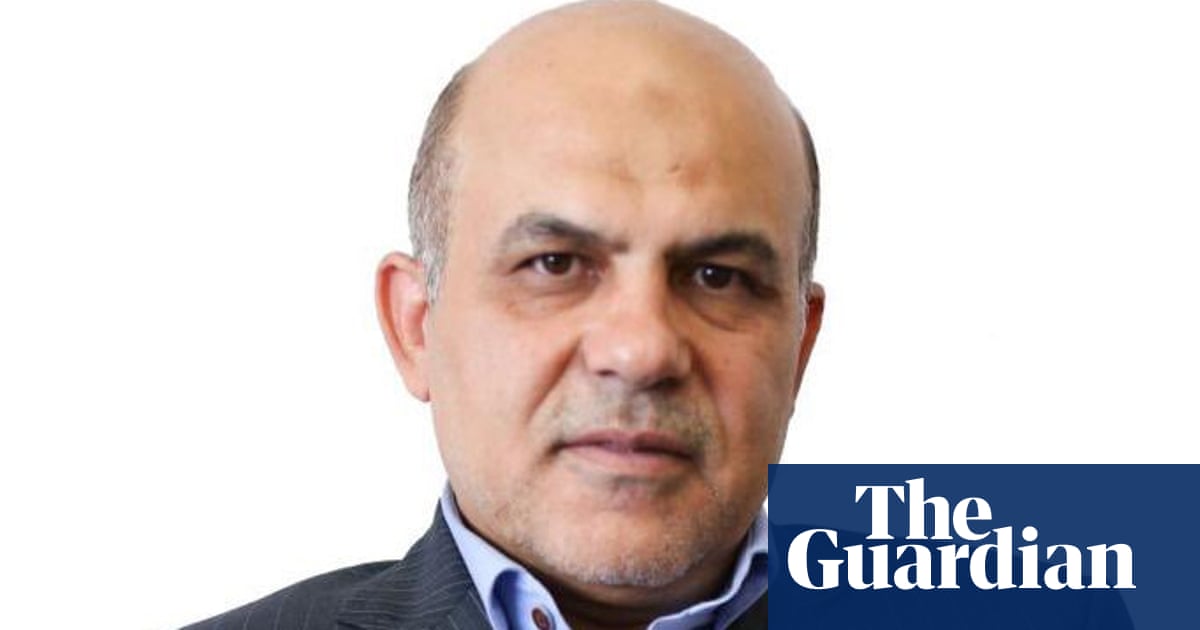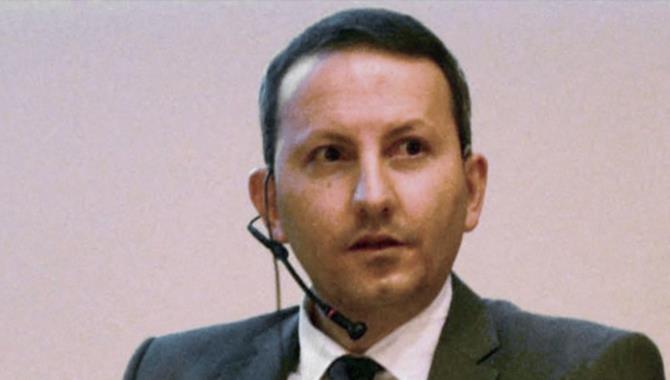
The UK foreign secretary, James Cleverly, has urged the Iranian government not to press ahead with plans to execute a British-Iranian dual national found guilty of spying for MI6.
Alireza Akbari, a former Iranian deputy defence minister who has lived in the UK for more than a decade, could be executed within days after he was found guilty by the revolutionary courts of being a senior spy for M16. His appeal was rejected more than three months ago, but for reasons that are not clear the Iranian security services are now threatening to go ahead and impose the death penalty.
Cleverly said: “Iran must halt the execution of British-Iranian national Alireza Akbari and immediately release him. This is a politically motivated act by a barbaric regime that has total disregard for human life.”
Akbari’s wife, Maryam Akbari, told the Guardian that her husband was the victim of Iranian factional power politics and is a patriot. The UK Foreign Office said it had been supporting the family and had been in touch with the Iranian authorities about his case only days ago. The family and the Foreign Office had decided against publicising his case after he was arrested more than three years ago, hoping he would be released as part of an internal appeal process.
Iran’s judicial news agency, confirming the death penalty, claimed Akbari was “one of the most important agents of the British spy service who collected important information and provided this for the British spy service in a fully informed and targeted manner”.
They claimed he had been cultivated by the British while seeking a visa and then recruited abroad.
Maryam Akbari, who is based in London, said she feared her husband would be executed within the next 24 hours. “He is entirely innocent and the victim of political games inside the country,” she said.
A family friend added: “It’s like an explosion in the life of a person who devoted his life to protect his country. Even if the UK Foreign Office can buy time for their citizen to see and speak to his family, that would relieve some pressure.”
The Foreign Office has been aware of Akbari’s case for some time, but was only asked in the last 24 hours to intervene by the family after all legal avenues in Iran were exhausted, and political lobbying did not bear fruit. The Guardian has also known about the case, but respected the family’s wish to try to resolve the issue privately.
Akbari was arrested more than three years ago, and has been in Evin prison in Tehran where he met other British Iranian dual nationals.
His wife said: “There is no evidence that he was a spy except a confession that was extracted after he was drugged and interrogated for 3,500 hours. He loves his country, but this is part of a political power game inside Tehran. His only contacts with British officials were those permitted by his official status.”
Alireza Akbari had been deputy defence minister under the reformist Mohammad Khatami, the president of Iran from 1997 to 2005. He was close to Ali Shamkhani, the secretary of the supreme national security council, and had been an advocate for the Iran nuclear deal that was eventually signed in 2015 between the west and Tehran.
After Akbari stood down as deputy defence minister, Maryam said, “he came out of government since public service was no longer possible [and] he found himself politically ostracised. He decided to leave Iran travelling to Austria and then Spain before we settled on a business in the UK”. She said he had a British passport after being naturalised.
She said the Foreign Office had told her that it would try to prevent his execution, but would not be able to secure his release.
“Ten or 12 years ago he had formal consultations with British officials and within the scope of his mission. He was not a spy, but the intelligence officials misinterpret a meeting with a university admissions officer, or an estate agent as a meeting with an agent,” Maryam Akbari said.
He was told three months ago that his final appeal had been rejected, but it was only 48 hours ago that he was put into solitary confinement, and subjected to a further four-hour interrogation in which he was told he was about to be executed and he should confess to his crime, one source said. He apparently told his interrogators this week: “Don’t worry about my afterlife, worry about yourself with all the crimes you have committed.”
News of Akbari’s case was then leaked to Iranian media without his name being divulged, but over the past 48 hours his identity was confirmed.
The evidence against him, which as been seen by the Guardian, is largely based on assertions of interpretations of circumstantial evidence. His case has been made known to his local MP, Andy Slaughter.
Speculation as to why his case has been put into the public domain now focuses on whether there is a power struggle between conservatives and moderates, in which Shamkhani’s past connections with Akbari is being used to undermine those that question the government’s hardline stance towards protesters or the country’s increasingly strong alliance with Russia. At various points during his interrogation, Akbari was told the evidence against him came from Russian intelligence sources. Shamkhani was defence minister between 1997 and 2005.
The Iranian authorities officially acknowledged Akbari’s conviction as a spy, adding that all his sources of appeal were now exhausted.
A spokesperson for the UK Foreign Office said: “We are supporting the family of Mr Akbari and have repeatedly raised his case with the Iranian authorities.
“Our priority is securing his immediate release and we have reiterated our request for urgent consular access.”
The Foreign Office said it had been in frequent contact about the case and most recently raised the issue on Wednesday.












